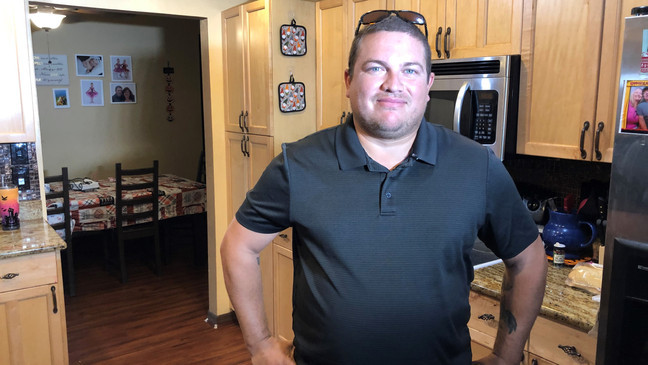Q. “I’m a yoga teacher in South Florida. I found out that a student who had been in one of my classes came down with COVID-19. The student with COVID told the yoga studio owner, but the owner did not tell me or anyone who was in that class. Was there a legal obligation for the studio owner to share this information with me or the people in the class? I feel like we all should have been told so we would know to get tested.” — Concerned instructor A. “There’s no legal requirement. It’s more of a moral responsibility,” said attorney Peter Sachs, a founding partner and chairman emeritus of the law firm Sachs Sax Caplan in Boca Raton. “The yoga studio owner has an obligation to maintain a safe environment for her customers,” Sachs said. “In my opinion, this responsibility would include an obligation to notify the other students in the class that one of the students (name should remain confidential) they participated in class with had come down with a contagious disease such as COVID-19. The yoga studio owner breached that duty by withholding this information either intentionally or negligently.” There might have been a legal remedy if the teacher contracted COVID-19 from the student in her class, Sachs said. “There is no remedy for simply not notifying her,” Sachs said. “Her option without anything else would be to stop doing business with that studio.” Questions appeared in the Sun-Sentinel
A Boca Raton Law Firm | HOA Attorneys, Business Litigation,
and Real Estate Transactions
Commercial Litigation & Appeals
Representing governmental entities, individuals, for-profit and not-for-profit corporations, our litigation attorneys have extensive civil litigation and trial experience in both state and federal courts.
Community Association Law
Representing condominium associations, homeowners associations, country clubs, cooperatives, developers, financial institutions and individuals in the creation of and governance of these organizations.
Estate Planning, Trust & Probate Administration
The Estate Planning, Trust & Probate Administration Practice Group offers personal tax planning and advice to assist clients with the preservation of wealth and transfers to succeeding generations.
Real Estate, Corporate &
Land Use
Representing buyers, sellers, investors, developers, lenders, architects, engineers, contractors, landlords and tenants in commercial, industrial and residential real estate and financing transactions.
On November 4, 2021, the U.S. Department of Labor’s Occupational Safety and Health Administration (“OSHA”) issued an Emergency Temporary Standard (“ETS”) aimed at protecting workers from coronavirus. OSHA indicates that this guidance will increase protections for more than 84 million private-sector workers. The ETS covers employers with 100 or more employees-firm or companywide- and provides options for compliance. So, this is likely to affect many Country Clubs, as Country Clubs often employ their own staff as opposed to hiring a staffing or management company. It may also impact large condominium or homeowners associations if they directly employ 100 or more people or if their management company does and the association has an indemnity obligation in the management agreement. The ETS, which is set to go into effect on November 5, 2021, requires covered employers to do the following: Survey the workforce and determine the vaccination status of each employee, which includes obtaining acceptable proof of vaccination status from those staff that is vaccinated.Create a protocol for testing for unvaccinated employees, which requires testing for COVID-19 to occur at least weekly.Require that employees who are not fully vaccinated to wear facial coverings when indoors or in a vehicle with another person.Require employees to provide prompt notice of a positive COVID-19 test, and immediately remove that employee from the workplace, regardless of vaccination status, until they meet certain negative testing criteria. In essence, the ETS requires all employees of covered employers to become fully vaccinated or else be required to submit to weekly testing. The ETS requires covered employers to provide paid leave for employees to get vaccinated (up to four hours) and an unspecified amount of paid sick leave for employees to recover from the side effects of the vaccine. The ETS does not require covered employers to pay for the vaccine itself. For those employees who choose not to be vaccinated but instead submit to weekly testing, the expense of testing is borne by the employee, not the employer. The ETS also does not apply to those employees who work exclusively outside, remotely from their homes, or in workplaces with no...
We often get phone calls from officers and board members of condominium and homeowners’ associations who feel they have been criticized unfairly by unit owners. Sometimes, they insist on taking legal action to put a stop to the most unfair or mean-spirited of the attacks. These calls are as varied as the condominium and homeowners’ associations in Florida. Sometimes the caller has an extremely serious concern; sometimes, not so much. The first discussion between and lawyer and a client in this situation is the possible application of defamation law to counterattack against the critic. Defamation includes two types of legal claims: Libel, for written defamation, and slander, for spoken defamation. In modern law, there is not much difference between the two except that one is spoken and one is written, but the terms linger in the law from its ancestry. Whether the words are actionable as a defamation depends on the words used and the context in which they are used. On this topic, my bookshelves are filled with multi-volume treatises, and in my practice, I cite to scores of Supreme Court decisions of thousands of pages. To be clear, in this blog, I am going to discuss only one tiny piece of this vast body of law. Pubic-spirited people who offer themselves up as volunteers to serve on community associations naturally tend to feel they are in the private sector and are not “politicians” or “officials.” True as that may be, it is also true that by stepping up to a leadership role in their community, they voluntarily submit to a certain amount of public scrutiny. At least, they do so to the limited extent of their control over matters of interest to the residents they serve, especially the collection and expenditure of the association’s money. They have surrendered some of their obscurity and anonymity and accepted a limited “public figure” status. They have given other people a constitutional right under the free speech clause of the First Amendment to criticize their performance publicly. Thus, to some extent, when it comes to defamation law, they are analogous to a local...
The consequences of the tragic Champlain South Tower collapse in Surfside, Florida continue to be felt for many condominium associations and unit owners within the thousands of condominium and cooperative communities throughout Florida. For many older condominium and cooperative buildings in Florida and for those that expect significant expenses for deferred maintenance or which may have large special assessments anticipated or already in place, borrowing money to purchase units in these buildings is likely to become much more difficult. On October 13, 2021, Federal National Mortgage Association (“Fannie Mae”) issued Lender Letter (LL-2021-14), titled Temporary Requirements for Condo and Co-op Projects, imposing new “temporary” rules and restrictions pertaining to Fannie Mae’s purchase of loans from primary lenders on the secondary market. For the most part, these new requirements go into effect on January 1, 2022. The details and complexities of the secondary mortgage market are beyond the scope of this column. However, suffice it to say that without assurances that the mortgages backing the loans given by primary lenders (banks, credit unions, etc.) will be purchased on the secondary market (particularly by Fannie Mae), most primary lenders will not be financing home purchases. Under the new requirements, any loans that are secured by units with “significant deferred maintenance” or buildings that have received a directive from a regulatory authority or an inspection agency to make repairs due to unsafe conditions are not eligible for purchase by Fannie Mae and will remain ineligible until the required repairs have been completed. Further, any loans for units in buildings that have failed to pass local regulatory inspections or recertifications are, similarly, ineligible for purchase (e.g., the “40-year recertifications” required in Broward and Miami-Dade counties, and, recently, the 30-year recertification in the City of Boca Raton). Under the new requirements, “significant deferred maintenance” may mean any of the following: 1) full or partial evacuation of the building to complete repairs is required for more than seven days or an unknown period of time (unlikely for most buildings); or2) the building has deficiencies, defects, substantial damage, or deferred maintenance that:a. affect the safety, soundness, structural integrity,...

Under Florida law, a prenuptial agreement is a contract signed between two parties who intend to get married, which defines their respective rights and obligations during the marriage, or at a later time if the marriage is dissolved. Prenuptial agreements can be used to attempt to avoid expensive and lengthy legal battles that sometimes occur when a marriage ends. They can also be used to avoid equitable distribution of their assets by a court during a divorce by instead instructing the court on how assets should be divided between the parties. Prenuptial agreements can address issues such as: Distribution of assetsDivision of propertyPromises made between partiesHow (or whether) each party will be supported after a divorce It should be noted that a prenuptial agreement may not include waivers of provisions regarding parental responsibility, child support, or time-sharing rights. Prenuptial agreements are enforceable in Florida if in writing and if all provisions are met, especially the full disclosure of assets and liabilities to each party. Because it is important to take all necessary steps to ensure the validity of a prenuptial agreement and avoid later claims of fraud or coercion, it is important for each party entering into a prenuptial agreement to have an attorney who can inform them of their rights and prepare or review any proposed agreement. Because prenuptial agreements are often non-modifiable and will not be invalidated simply because they are more favorable to one side than another, it is critical to seek the advice of an experienced attorney before signing a prenuptial agreement. Postnuptial Agreement A postnuptial agreement is similar to a prenuptial agreement, except that parties sign it after they are already married. Postnuptial agreements may be created without anticipation of divorce and are used to set forth the rights of parties during the marriage or in the event of death. They can also be created when a married couple anticipates divorce and wishes to amicably distribute their assets – this type of agreement is also called a separation agreement. As with prenuptial agreements, postnuptial agreements must be in writing and should be reviewed by an experienced...

The Florida Department of Health on Tuesday fined Leon County $3.5 million for its vaccine mandates for county employees. It comes at a time when many businesses are increasingly requiring this for their workers, or get let go. David Smith, a United States Air Force Veteran of Royal Palm Beach, tells CBS12 News it happened to him. “They said get the vaccine card, or nothing,” Smith said inside his home Tuesday evening. Smith, a father of two, completed several tours in Afghanistan in the mid to late 2000s. Yet he faced a tough battle when he said his boss over at a pest control company in Riviera Beach required his over 100 employees to get vaccinated by October 1. According to Smith, he wasn’t given the option to do a COVID [test] every week. The 35-year-year old had COVID-19 months ago and even talked to his doctor about this before making a decision. “They told me there is no added pros to me getting the vaccine, since I already had it. They advised me not to get it,” Smith said. “Ultimately, I believe I was the only one that was let go because of it.” It was a tough decision for Smith after four long years with the company, but he believes in the right to choose. “I really grew into the position I was in and it just came to this one thing. That was such a hard line," Smith said. He was concerned that if somebody at his office was to get it, or one of us got it, that they could come back at him.” The guidance under the U.S. Equal Employment Opportunity Commission confirms employers can require vaccinations, but there are limited exceptions for religious or medical reasons. While vaccine passports are banned in the state of Florida, Palm Beach County attorney Peter Sachs said showing proof, at this time, applies to employees. “If its condition of employment as of the date of certain, the employee would have to show evidence that he got or she got the vaccine,” said attorney Peter Sachs of Sachs Sax & Caplan Law Firm in Boca Raton....

An operating agreement is one of the most important documents you can create in connection with the formation of a limited liability company (LLC). An operating agreement is an agreement between the members of the LLC setting forth the procedures governing the operation and management of the LLC, and setting forth the members’ respective interest in the LLC. (In principle, it accomplishes what a shareholder’s agreement and bylaws does for a corporation, and a partnership agreement for a partnership.) An operating agreement allows the members to: (i) verify their percentage ownership in the LLC, (ii) document their initial capital contributions to the LLC, (iii) determine how profits and losses will be split among the members, (iv) establish voting rights of the members, (v) define the powers and duties of the managers and members, and (vi) provide for restrictions on transfer of membership interests in the LLC. State law provides “default provisions” in case members fail to properly structure the LLC through an operating agreement. These default provisions often provide unexpected results to the members, which may vary significantly from the initial intent and expectations of the members. As a result, the importance of an operating agreement cannot be overstated. An operating agreement will add structure and certainty among the members regarding the operations of the LLC. Depending upon your circumstances, the operating agreement may be drafted to include more advanced provisions such as: (i) different classes of membership interests, (ii) capital calls and mandatory loans, (iii) buy-sell rules, and (iv) deadlock resolution. The creation of an operating agreement for a single-member LLC is just as crucial as in a multi-member LLC. In order to maintain an LLC’s liability protection, the member needs to keep his/her personal affairs separate from the LLC’s affairs (which can sometimes be made more difficult when there is only one member). An operating agreement for a single-member LLC establishes the formality of the LLC and provides an important element of the LLC’s complying with corporate formalities, separate and distinct from its owner. If an LLC ever plans on obtaining a loan, the lender will almost always ask...

As you may be aware, several changes were made to both Chapters 720 and 718, Fla. Stats., in the 2021 legislative session. Among the many changes in Chapter 720, Fla. Stat. was the removal of Rules and Regulations from the definition of “Governing Documents.” Previously, “Governing Documents” were defined in the Homeowners Association Act to include the Declaration of Covenants, Bylaws, Articles of Incorporation and Rules and Regulations. This was very important for many reasons, including the fact that amendments to Governing Documents are required by law to be recorded in the public records. Therefore, for the last several years, we have been advising clients that even changes to the Rules and Regulations are required to be recorded. With this new change in the law, amendments to the Rules and Regulations no longer are required to be recorded in the public records. There is no prohibition from doing so and we sometimes recommend recording changes to the Rules. This puts the world on record notice of the changes in the Rules and Regulations over time. However, the removal of the Rules and Regulations from the definition of “Governing Documents” has some additional consequences. For example, under Section 720.305, Fla. Stat., a homeowners association may levy fines in an amount not to exceed One Hundred ($100.00) Dollars per violation and One Thousand ($1,000.00) Dollars in the aggregate for a continuing violation, unless the “Governing Documents” provide otherwise. The previous years since the Rules and Regulations were included in the definition of Governing Documents, we have been advising clients that they may increase the amounts that can be levied for fines in a homeowners association through Board adopted Rules and Regulations so long as such rules did not conflict with a superior provision in the Declaration, Articles of Incorporation or Bylaws. However, now, since the “Governing Documents” no longer include Rules and Regulations, any such authority to charge fines in a higher amount than the above-referenced thresholds must either be in the Declaration, Articles of Incorporation or Bylaws, and may no longer be contained in the Rules and Regulations. It is important to...
Peter S. Sachs, a Founding Partner and Chairman Emeritus of Sachs Sax Caplan P.L. answers questions regarding how vaccine mandates could potentially impact condo associations. “I live in a senior community. Can I ask employees of the community about their vaccination status? Obviously, we prefer to have vaccinated employees at work here, in the clubhouse, and elsewhere. Is it legal for us to ask or require this of the management company?”— Paul, Boynton Beach “Don’t take this upon yourself; speak to your management company. It would not be appropriate for a resident to inquire of an employee directly regarding vaccination status. It is a private matter. However, the board of the association or community may require the management company to certify that all of its employees on-site will be vaccinated as of a date certain as a matter of policy and contract between the association and the management company. The community at large may then rely upon the certification of their vendor, the management company.” “I have organized a luncheon for leaders of the hospitality industry at a hotel in Fort Lauderdale on Oct. 8. On the official invitation, I added a clause as follows: “COVID-19: For the safety of all attendees, vaccination cards will be required.” There will be no more than 52 attendees due to the capacity of the dining room in the hotel. By asking for vaccination cards, am I facing legal issues because of Gov. Ron DeSantis’s new law? Could the hotel be held liable in addition to myself?” — Ron Stevens, Boca Raton “You can’t ask people for their vaccination cards because of the new Florida law that prevents businesses, schools and government agencies from requiring people to show documentation certifying COVID-19 vaccinations before gaining entry. The only exception is health care facilities. If you require the vaccine card as a condition of entry, you run the risk of being fined $5,000, and the hotel also could face a penalty. The hotel may have exposure. The reader may want to have the event catered at a private home rather than involve the hotel, which likely would have concerns if it knew...
SSC attorneys Michael Chapnick and Steve Geller, who also serves as Broward County Mayor, discuss the final proposed recommendations by the Broward Committee on Building Safety.
With greater attention being given to building safety, the City of Boca Raton has implemented a Building Recertification Inspection Program. The City Council passed Ordinance 5589 at its August 24, 2021 meeting. The new ordinance will require inspection and recertification of buildings that are 30 years and older. Additional recertification will be required every 10 years. This requirement applies to buildings that are greater than three stories in height and to buildings that are greater than 5,000 square feet with an occupancy of greater than 500 persons. Single-family homes and duplexes are exempted. 242 buildings currently meet the criteria for the recertification requirement, and the City will begin inspections of these buildings on a proposed four-year schedule with the buildings divided into four zones based on geographic location. The recertification process will include the submittal of an engineering/inspection report, review by the City’s Building Official, and implementation of a Repair Plan as required. Impacted buildings will be notified by the City at least a year before the deadline. Should you wish to discuss the impact of the foregoing on your building, please do not hesitate to call us.
I’m Steve Geller, and I’m Of-Counsel to Sachs Sax Caplan. I’m an “A-V Preeminent” Lawyer, listed in both “Florida’s Best Lawyers”, “South Florida Super Lawyers”, etc. I’ve been practicing law for 39 years, and when I’m not practicing law, I’m also a politician. I served in the Florida House and Senate for 20 years, including serving as the Senate Minority (Democratic) Leader, and I’m currently a Broward County Commissioner and Mayor of Broward County. As Mayor, after the collapse of the Champlain Towers South Condominium in Miami-Dade County, I created and appointed the “Broward County Condominium Structural Issues Committee”, to study the issues involving Condominium living and safety. This Committee consisted of 16 members. I served as Chair. Other members included two State Senators, two State Representatives, two Mayors, three City Commissioners, representatives of condominium associations, engineers, attorneys, (including SSC’s own Michael Chapnick, Board Certified in Condominium and Planned Development Law), etc. All three City Commissioners were experts in Condominium issues. The Committee met for over 26 hours, and heard expert testimony from 12 speakers, including engineers, attorneys, insurance experts, an environmental expert testifying on the impact of sea level rise on condominiums, etc. The Committee also took public testimony. The Committee spent hours debating issues and reached recommendations that I wanted to share with you. There was extensive testimony about the inherent tension which sometimes exist between unit owners and a Condominium Board relating to expenditures. Many condominium residents, particularly seniors, don’t want to or feel that they can’t pay for proper maintenance or for reserves, which are moneys set aside for large future expenditures. For example, if you know that you’re going to need a new roof in 15 years, you should be setting aside one fifteenth of that money each year. Florida law requires that this money be set aside, but also permits the unit owners to waive the reserves by a majority vote. There was extensive testimony that better maintenance would be far more cost effective than having to replace structural support later. The Committee recommended that in order to...
Peter S. Sachs explains potential exemptions to the President's vaccine mandate for businesses. Watch the video from WPTV below. Source: https://www.wptv.com/coronavirus/president-biden-unveils-his-new-strategy-to-combat-covid
As we have previously discussed, during the COVID-19 pandemic, the Federal Government issued moratoriums on residential evictions as well as foreclosures. These were enacted in order to protect the public health and prevent an overwhelming number of people becoming homeless, or to protect those struggling with the affects of the pandemic. Earlier this month, the foreclosure moratorium, after several renewals, lapsed. However, the Federal Government has, once again, extended the moratorium on residential evictions. However, in so doing, they have added some limitations to its applicability. The order says “a landowner, owner of a residential property, or other person with a legal right to pursue eviction or possessory action, shall not evict any covered person from any residential property in any county or U.S. territory while the county or territory is experiencing substantial or high levels of community transmission of SARS-CoV-2.” The order goes on to define a covered person, in pertinent part, as a tenant or other person in possession who provides their landlord with a declaration under the penalty of perjury that (i) the individual has used his best efforts to obtain governmental assistance for rental or housing; (ii) they earned less than $99,000 (or $198,000 if filing jointly) in 2020, or expects to learn less in 2021; (iii) the individual is unable to pay rent due to loss of income; (iv) the individual is using best efforts to make timely partial payments as best they can; (v) eviction would render the individual homeless; and (vi) the individual lives in an area with substantial or high rates of community transmission. Again, it is worth noting that the moratorium on foreclosures has lapsed, and thus foreclosures are legally permitted to proceed. Should you need to discuss the impact of the foregoing on your Association, please do not hesitate to call us. Daniel Weber, Esq.
Florida Statute 718.303, which governs condominium associations, is titled “Obligations of owners and occupants; remedies.” Section 718.303(1) grants condominium associations and unit owners the power to file certain actions against: (1) an association; (2) a unit owner; (3) directors; and/or (4) tenants or other invitees occupying a unit. Until June 30, 2021, Section 718.303(1) applied to “[a]ctions for damages or for injunctive relief, or both, for failure to comply” with Chapter 718, Florida Statutes, and/or a condominium’s governing documents. However, effective July 1, 2021, the Florida Legislature amended Section 718.303(1), by replacing “[a]ctions for damages or for injunctive relief” with the broader language of actions “at law or in equity.” Under Florida law, each party is responsible for their own attorneys’ fees absent a contract or statute stating otherwise. Importantly, Section 718.303(1) provides that the prevailing party in such actions is entitled to recover attorney’s fees from the non-prevailing party. Thus, prior to the amendment of Section 718.303(1), a prevailing party in an action for damages or for injunctive relief under that statute was entitled to attorney’s fees. But now prevailing parties are entitled to an award of attorney’s fees in actions at law or in equity, or both relating to the failure to comply with Chapter 718 or the governing documents. Declaratory judgment actions are common causes of action raised in Chapter 718 proceedings. For this action, a plaintiff usually maintains that declaratory relief is needed on an issue where there is uncertainty as it relates to the parties’ rights, duties, and status. Declaratory relief is neither damages nor injunctive relief. Thus, a prevailing party under the prior version of Section 718.303(1) would not have been entitled to recover attorney’s fees from the non-prevailing party. For example, in Angelo’s Aggregate Materials, Ltd. v. Pasco Cty., 118 So. 3d 971, 975 (Fla. 2d DCA 2013), the appellate court construed “damages or injunctive relief” expressed in a county ordinance “to apply only to damages and injunctions and not to declaratory actions.” But now Section 718.303(1) specifies actions “at law or in equity,” and...

Sachs Sax Caplan, P.L. is proud to be recognized by The Florida Bar for our commitment to hiring and developing Board Certified Attorneys.











